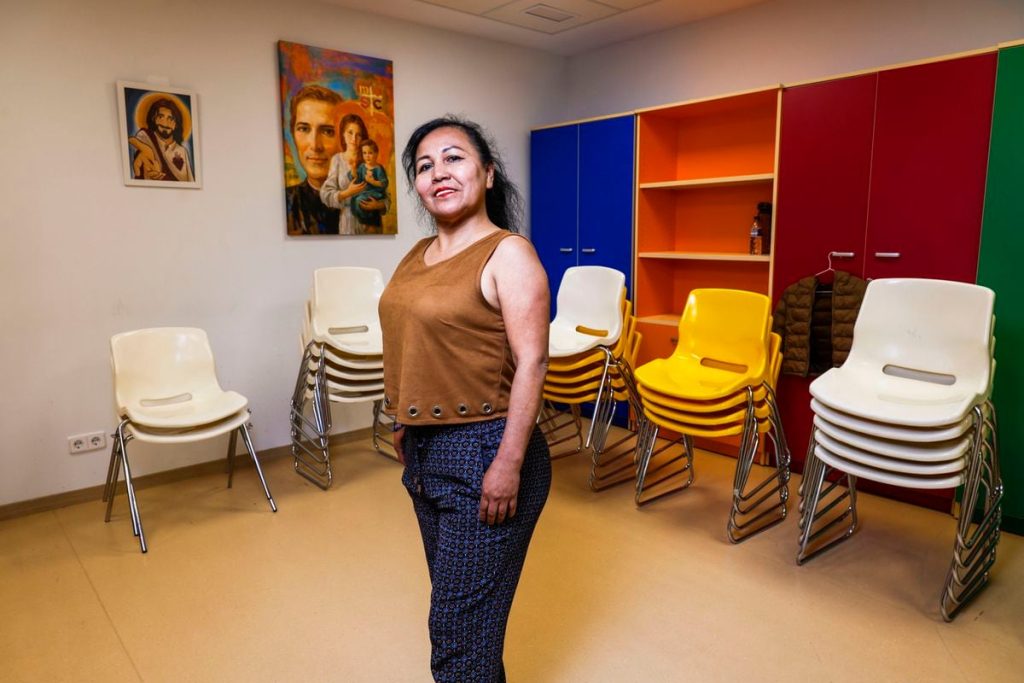On the afternoon of Tuesday, April 9th, the Congress was debating whether or not to admit a Popular Legislative Initiative (IPL) aimed at mass regularization of foreign residents in Spain. At the same time, Amadou, a 40-year-old man from Mali who arrived in the Canary Islands more than two decades ago, was working on a moving job in Madrid without a contract. Amadou, not his real name, fears that being openly mentioned in this report will further harm his already precarious situation. He also does not want photos. Ultimately, the Congress approved the initiative with all votes in favor except from Vox, allowing it to continue its parliamentary journey. However, this does not mean there will be an automatic and mass regularization of foreigners, like the one in 2005 under the socialist government of José Luis Rodríguez Zapatero. It only means that the request will be discussed. Several political parties, including the PP and PSOE, have indicated they will propose amendments that may modify or limit the proposal, which aims to provide documents to all foreigners who have been living and working in Spain since November 2021.
Amadou, accustomed to things not working out, does not have much confidence. He describes his life in Spain as a constant struggle to survive, filled with bad decisions, necessity, and bureaucratic crimes that lead to dead ends. He has worked odd jobs from selling CDs to construction work, facing challenges with false documentation and denials of work permits. Despite his struggles, he remains hopeful that with the assistance of a lawyer, his situation will be resolved and he will finally obtain the necessary documents. Amadou dreams of having legal papers and being able to work as a qualified professional, but he feels trapped in a cycle of falsifying documents due to his lack of legal status. He reflects on the choices he made in the past and wishes he could advise his younger self to stay in Mali.
A report from March 2022 by the association Por Causa revealed that by the end of 2020, there were close to 500,000 undocumented foreigners living in Spain. This number has since increased, with the majority of irregular immigrants being women from Latin America. The study also highlighted that a significant portion of this population works in domestic services and hospitality. The influx of undocumented immigrants is directly related to the labor market, which fluctuates based on economic conditions. Zoraida Gaviria, a 49-year-old Colombian woman, also faced challenges as an undocumented immigrant in Spain. After losing her restaurant in Colombia due to the pandemic, she emigrated to Spain and found work as a live-in domestic worker through the help of a church organization.
Zoraida reflects on the struggles of living without legal documentation, describing it as being invisible in society. She explains the limitations of not having papers, including the inability to open a bank account, rent a house, or return to her home country. Despite the challenges, Zoraida is hopeful for a solution through the church’s support and the possibility of obtaining residency through the legal process. Like Amadou, she dreams of a future where she can have legal status and the freedom to live and work without fear. Both Amadou and Zoraida aspire to achieve what Daouda Sarr, a Senegalese immigrant in France, accomplished through the mass regularization in 2005, which transformed his life and allowed him to advocate for fair working conditions.
The stories of Amadou and Zoraida shed light on the struggles faced by undocumented immigrants in Spain and their hopes for a better future through regularization. As the debate continues in Congress about the proposed initiative, many undocumented immigrants remain in limbo, hoping for a resolution to their legal status. The path to regularization is filled with challenges and uncertainties, but for individuals like Amadou and Zoraida, it represents a chance for a new beginning and the possibility of a brighter future in Spain. By sharing their experiences, they bring attention to the complexities of immigration policies and the human stories behind the statistics, urging for compassion and understanding in the pursuit of a more inclusive society.















